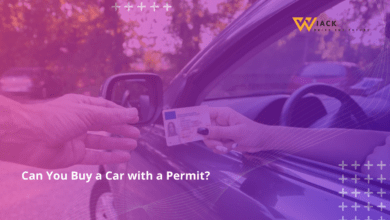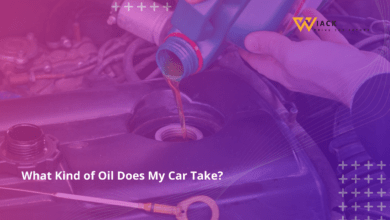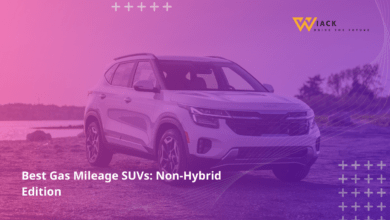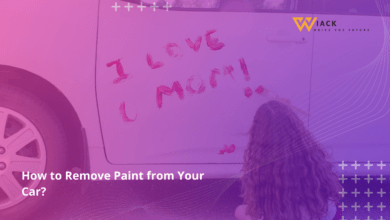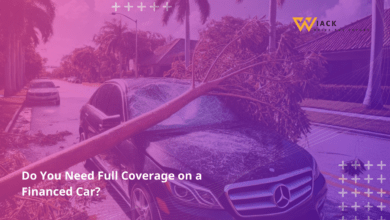How Much Does It Cost to Wrap a Car?
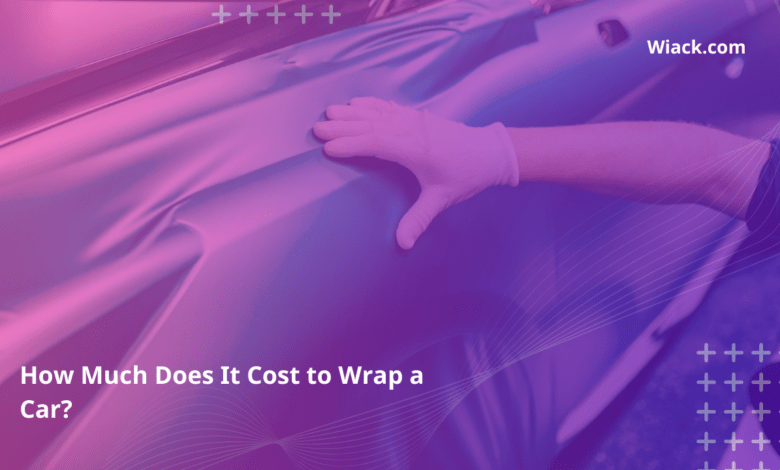
Did you know that the average cost to wrap a car ranges from $2,000 to $6,000? This surprising statistic highlights the significant investment involved in transforming a vehicle’s appearance through vinyl wrapping. As we delve into the world of car wraps, we’ll explore the factors that influence these costs and help you understand whether this popular automotive trend is right for you.
Understanding Car Wrapping
What is Car Wrapping?
Car wrapping is a process of covering a vehicle’s original paint with a layer of vinyl film. This technique allows car owners to dramatically change the appearance of their vehicles without the permanence of a new paint job. The vinyl wrap can be applied to the entire car or just specific sections, offering flexibility in design and cost.
When you wrap a car, you’re essentially giving it a new skin. The vinyl material comes in a wide variety of colors, textures, and finishes, allowing for nearly limitless customization options. From sleek matte black to eye-catching chrome, the possibilities are as diverse as car owners themselves.
The process of applying a car wrap involves several steps:
- Thorough cleaning of the vehicle’s surface
- Removal of any exterior components that might interfere with the wrap
- Careful measurement and cutting of the vinyl material
- Application of the vinyl, often using heat guns to ensure a smooth finish
- Trimming and tucking of edges for a seamless look
- Reattachment of any removed components
This process requires skill and precision, which is why professional installation is often recommended for the best results.
Benefits of Car Wrapping
Choosing to wrap a car comes with several advantages that make it an attractive option for many vehicle owners:
- Customization: Wraps offer unparalleled opportunities for personalization. Whether you want a simple color change or a complex graphic design, wraps can bring your vision to life.
- Protection: A vinyl wrap acts as a protective layer for your car’s original paint. It shields the surface from minor scratches, UV rays, and other environmental factors that can degrade paint over time.
- Reversibility: Unlike a paint job, a wrap can be removed without damaging the original paint underneath. This is particularly appealing for those who lease their vehicles or plan to sell in the future.
- Cost-effectiveness: While not cheap, wrapping is often less expensive than a high-quality paint job, especially for complex designs or color shifts.
- Quick turnaround: A full car wrap can typically be completed in a few days, compared to the weeks that might be required for a custom paint job.
- Advertising potential: For businesses, vehicle wraps offer a mobile advertising platform that can generate thousands of impressions daily.
These benefits have contributed to the growing popularity of car wraps among both individual car enthusiasts and businesses looking to make a statement on the road.
Drawbacks of Car Wrapping
While car wrapping offers many advantages, it’s important to consider some potential drawbacks:
- Durability concerns: Although high-quality wraps can last several years, they’re generally not as durable as a good paint job. Exposure to harsh weather conditions or improper care can lead to premature wear.
- Installation challenges: Achieving a flawless wrap requires skill and experience. Poor installation can result in bubbles, wrinkles, or peeling edges, detracting from the overall appearance.
- Limited longevity: Even with proper care, most car wraps have a lifespan of 3-5 years before they need to be replaced. This ongoing cost should be factored into the decision to wrap.
- Potential paint damage: While rare, there’s a small risk of paint damage when removing a wrap, especially on vehicles with pre-existing paint issues.
- Resale considerations: While some buyers might appreciate a unique wrap, others may be deterred by a non-standard appearance, potentially affecting resale value.
Understanding these potential drawbacks is crucial when deciding whether to wrap a car. For many, the benefits outweigh these concerns, but it’s essential to make an informed decision based on your specific needs and circumstances.
Cost Factors
When considering how much does it cost to wrap a car, several factors come into play. These variables can significantly impact the final price, making it essential to understand each element before committing to a wrap project.
Size of the Vehicle
The size of your vehicle is one of the most significant factors in determining the cost of a wrap. Larger vehicles require more material and labor, which directly translates to higher costs. Here’s a general breakdown of how vehicle size affects wrapping costs:
- Compact cars (e.g., Honda Civic, Ford Focus): $2,000 – $3,000
- Midsize sedans (e.g., Toyota Camry, Honda Accord): $3,000 – $4,000
- Full-size sedans (e.g., BMW 7 Series, Mercedes S-Class): $4,000 – $5,000
- Small SUVs (e.g., Honda CR-V, Toyota RAV4): $3,500 – $4,500
- Large SUVs (e.g., Chevrolet Tahoe, Ford Expedition): $4,500 – $6,000
- Trucks (depending on cab and bed size): $3,500 – $6,000
These price ranges are estimates and can vary based on other factors we’ll discuss. It’s important to note that even within these categories, variations in body style and design complexity can affect the final cost.
Type of Wrap
The type of wrap you choose plays a crucial role in determining the overall cost. Different materials and finishes come with varying price points, reflecting their quality, durability, and visual impact.
Vinyl Quality
Vinyl wraps are available in different grades, each with its own price point:
- Calendar vinyl: This is the most affordable option, typically used for short-term applications or flat surfaces. It’s less durable and flexible than higher-grade options.
- Cast vinyl: This higher-quality material is more durable and conformable, making it ideal for long-term use and complex vehicle shapes. It’s more expensive but offers better results and longevity.
- Specialty vinyl: These include unique finishes like chrome, color-shifting, or textured wraps. They’re the most expensive but offer unparalleled visual impact.
The choice of vinyl quality can significantly impact the cost to wrap a car. While it might be tempting to opt for the cheapest option, investing in higher-quality vinyl often pays off in terms of durability and appearance.
Specialty Wraps
Specialty wraps deserve special mention due to their significant impact on cost. These wraps offer unique visual effects that can truly make your vehicle stand out:
- Chrome wraps: These reflective wraps can cost 2-3 times more than standard wraps due to the material cost and installation complexity.
- Color-shifting wraps: These wraps change color depending on the viewing angle, offering a dynamic appearance. They’re priced similarly to chrome wraps.
- Textured wraps: Wraps that mimic materials like carbon fiber or brushed metal fall into this category. They’re more expensive than standard wraps but less so than chrome or color-shifting options.
- Custom printed wraps: These allow for completely unique designs but come with additional design and printing costs.
When considering a specialty wrap, it’s crucial to factor in not just the higher material costs, but also the increased labor required for proper installation.
Complexity of the Design
The complexity of your chosen design is another significant factor in determining the cost to wrap a car. Simple, single-color wraps are the most affordable, while intricate designs with multiple colors or patterns will increase the price.
Design complexity affects costs in several ways:
- Material waste: Complex designs often require more vinyl to be cut and discarded, increasing material costs.
- Installation time: Intricate patterns take longer to apply correctly, increasing labor costs.
- Skill level required: More complex designs may require a more experienced installer, which can command higher rates.
For example, a simple matte black wrap on a sedan might cost around $3,000, while a multi-color design with custom graphics on the same vehicle could easily exceed $5,000.
Condition of the Vehicle
The condition of your vehicle’s exterior can significantly impact the cost of wrapping. Ideally, the surface should be smooth and free of dents, rust, or chipping paint. Issues with the vehicle’s surface can affect the wrap in several ways:
- Additional preparation: Vehicles with imperfections may require extra prep work, such as dent removal or rust treatment, adding to the overall cost.
- More material: Wrapping over imperfections often requires additional vinyl to ensure proper coverage and adhesion.
- Increased labor: Working around or addressing surface issues takes more time, increasing labor costs.
- Potential for issues: Wrapping over significant imperfections can lead to problems with the wrap’s appearance or longevity, potentially necessitating costly repairs or redos.
If your vehicle has significant exterior issues, it might be worth addressing these before wrapping to ensure the best possible result and potentially save money in the long run.
Location
The cost to wrap a car can vary significantly depending on your location. Factors that influence regional price differences include:
- Local competition: Areas with more wrap shops may have more competitive pricing.
- Cost of living: Cities with higher costs of living generally have higher service prices.
- Demand: Areas where car wraps are particularly popular may command premium prices.
- Expertise availability: Regions with fewer experienced installers may have higher prices for quality work.
For example, wrapping a car in a major metropolitan area like New York or Los Angeles might cost 20-30% more than in a smaller city or rural area. It’s worth researching prices in your local area and potentially considering nearby regions if significant savings can be found.
Understanding these cost factors is crucial when budgeting for a car wrap. By considering each element, you can make an informed decision about the type of wrap that best fits your vision and budget.
Labor Costs
When considering how much does it cost to wrap a car, labor is often one of the most significant expenses. The skill and time required to properly apply a vinyl wrap contribute substantially to the overall cost.
Professional Installation
Professional installation is highly recommended for achieving the best results when you wrap a car. Here’s a breakdown of what’s involved in professional labor costs:
- Hourly rates: Professional installers typically charge between $50 to $100 per hour, depending on their experience and location.
- Time required: A full car wrap usually takes 2-3 days to complete, which translates to about 16-24 hours of labor.
- Complexity factors: Vehicles with complex curves, additional features (like spoilers or body kits), or those requiring disassembly for a seamless wrap will take longer and thus cost more.
- Prep work: This includes thorough cleaning, addressing any surface imperfections, and removing necessary parts. This crucial step can add several hours to the process.
- Expertise premium: Highly skilled installers or shops with excellent reputations may charge more for their services.
Based on these factors, labor costs for a full car wrap can range from $800 to $2,400 or more. This wide range reflects the variability in vehicle complexity and installer expertise.
DIY Installation
Some car owners consider a DIY approach to save on labor costs. While this can significantly reduce the overall expense, it comes with several considerations:
- Time investment: DIY installation can take significantly longer than professional work, often requiring 40-60 hours for a first-time installer.
- Skill requirement: Proper vinyl application requires skill and practice. Mistakes can be costly and may result in wasted material.
- Tool costs: You’ll need to invest in specific tools like squeegees, heat guns, and cutting tools, which can add $100-$200 to your costs.
- Risk factors: Improper installation can lead to bubbles, wrinkles, or premature peeling, potentially requiring professional correction or replacement.
- Warranty considerations: Many vinyl manufacturers void their warranties if the product is not professionally installed.
While DIY installation can save you $1,000 or more in labor costs, it’s crucial to honestly assess your skills and available time before choosing this option. For many, the potential for costly mistakes and the value of a professional finish outweigh the labor cost savings.
Whether you choose professional installation or decide to tackle the project yourself, understanding the labor involved in wrapping a car helps explain a significant portion of the overall cost. The expertise and time required to achieve a flawless finish are key components of the investment in transforming your vehicle’s appearance.
Material Costs
Understanding the material costs involved is crucial when calculating how much does it cost to wrap a car. The quality and type of vinyl used can significantly impact both the price and the final result of your car wrap.
Vinyl Wrap Costs
The cost of vinyl wrap material varies widely based on quality, brand, and special features. Here’s a breakdown of different vinyl options and their approximate costs:
Basic Vinyl Wraps
Basic vinyl wraps are the most affordable option and come in a range of solid colors and finishes. These are ideal for those looking for a simple color change or a matte finish:
- Calendar vinyl: $1 – $3 per square foot
- Cast vinyl: $2 – $4 per square foot
For an average-sized car requiring about 250 square feet of vinyl, basic material costs could range from $250 to $1,000.
Specialty Vinyl Wraps
Specialty vinyl wraps offer unique finishes and effects, but come at a premium price:
- Chrome vinyl: $8 – $10 per square foot
- Color-shifting vinyl: $6 – $8 per square foot
- Carbon fiber look: $3 – $5 per square foot
- Brushed metal finish: $4 – $6 per square foot
Using specialty vinyl, material costs for the same average-sized car could range from $750 to $2,500 or more.
It’s important to note that you’ll typically need to purchase more vinyl than the exact surface area of your car to account for waste, complex curves, and potential mistakes. A good rule of thumb is to add 10-15% to your calculated square footage.
Additional Costs
When budgeting to wrap a car, it’s crucial to consider additional costs beyond just the vinyl and labor:
Design Services
If you’re opting for a custom design rather than a simple color change, you may need to factor in design costs:
- Basic design work: $200 – $500
- Complex custom designs: $500 – $1,000 or more
Many professional wrap shops offer design services, but you can also work with independent graphic designers if you have a specific vision in mind.
Maintenance
Maintaining your car wrap is essential for longevity and appearance. While not immediate costs, these should be considered in your overall budget:
Cleaning
Proper cleaning of a wrapped vehicle requires specific products and techniques:
- Specialized car wash soap: $10 – $20 per bottle
- Microfiber cloths: $10 – $20 for a pack
- Professional detailing: $100 – $250 per session (recommended 2-4 times a year)
Repairs
Despite their durability, wraps can sometimes require repairs:
- Small patch repairs: $50 – $200
- Panel replacement: $200 – $500 per panel
Removal
When it’s time to remove your wrap, whether to replace it or return to the original paint, you’ll incur additional costs:
- Professional removal: $500 – $1,000 for a full car
- Removal tools (for DIY): $50 – $100
Understanding these additional costs helps provide a more complete picture of the investment involved in wrapping a car. While the initial wrap installation is the most significant expense, factoring in ongoing maintenance and eventual removal costs ensures you’re fully prepared for the financial commitment of a car wrap.
Cost Comparison
When considering how much does it cost to wrap a car, it’s helpful to compare this option with alternatives and variations. This comparison can provide valuable context for your decision-making process.
Paint Job vs Wrap
One of the most common comparisons made is between a vinyl wrap and a traditional paint job. Here’s how they stack up:
Paint Job Costs:
- Basic paint job: $1,000 – $3,000
- Standard paint job: $3,000 – $5,000
- High-quality paint job: $5,000 – $10,000+
Wrap Costs:
- Basic wrap: $2,000 – $4,000
- Premium wrap: $4,000 – $6,000
- Luxury or specialty wrap: $6,000 – $10,000+
Key considerations:
- Durability: A high-quality paint job can last 10+ years with proper care, while most wraps last 3-7 years.
- Customization: Wraps offer more design flexibility and can be changed more easily.
- Resale value: A quality paint job might increase resale value, while a wrap’s impact can vary.
- Protection: Wraps offer additional protection for the original paint, which can be beneficial for resale.
- Reversibility: Wraps can be removed to reveal the original paint, while changing a paint job is more permanent.
In general, wrapping a car is often more cost-effective for short-term color changes or complex designs, while painting might be preferable for long-term, simple color changes.
Partial Wrap vs Full Wrap
Another important comparison when considering how much does it cost to wrap a car is between partial and full wraps:
Partial Wrap Costs:
- Small partial wrap (e.g., hood, roof): $500 – $1,500
- Medium partial wrap (e.g., half the car): $1,500 – $3,000
- Large partial wrap (e.g., everything but the roof): $2,000 – $4,000
Full Wrap Costs:
- Basic full wrap: $2,000 – $4,000
- Premium full wrap: $4,000 – $6,000
- Luxury or specialty full wrap: $6,000 – $10,000+
Key considerations for partial wraps:
- Cost-effectiveness: Partial wraps can achieve a significant visual impact at a lower cost.
- Design flexibility: They allow for creative accents without committing to a full color change.
- Maintenance: Partial wraps may require less maintenance and are less expensive to replace.
- Transition: The transition between wrapped and unwrapped areas needs to be carefully considered for a cohesive look.
Partial wraps can be an excellent option for those looking to make a statement or add visual interest to their vehicle without the full cost of a complete wrap. However, for those seeking a complete transformation or uniform look, a full wrap is often the better choice despite the higher cost.
Financial Considerations
When deciding to wrap a car, it’s important to consider the financial implications beyond just the initial cost. Let’s explore some key financial aspects to help you make an informed decision.
Cost-Effectiveness of Car Wrapping
To determine if wrapping your car is cost-effective, consider the following factors:
- Longevity: A high-quality wrap can last 3-7 years with proper care. Compare this to how long you plan to keep the vehicle.
- Protection value: Wraps can protect your car’s original paint, potentially preserving its resale value.
- Customization flexibility: The ability to change your car’s appearance without affecting the original paint can be valuable, especially for leased vehicles.
- Maintenance costs: While wraps require some maintenance, they can be less expensive to maintain than a high-quality paint job.
- Resale considerations: A well-maintained wrap can be removed before sale, revealing the protected original paint. This can be appealing to buyers.
For many, the cost-effectiveness of a wrap comes down to personal value. If you highly value the ability to change your car’s appearance or protect its original paint, the cost of a wrap may be justified even if it’s not strictly financially advantageous.
Car Wraps as Advertising
For businesses, wrapping a car can be an extremely cost-effective form of advertising:
- Mobile billboard: A wrapped vehicle can generate thousands of impressions daily, reaching a wide audience.
- One-time cost: Unlike recurring advertising costs, a wrap is a one-time investment that continues to work for years.
- Tax deductions: In many cases, vehicle wraps used for advertising can be tax-deductible as a business expense. (Consult with a tax professional for specific advice.)
- Brand recognition: A well-designed wrap can significantly increase brand visibility and recognition in your local area.
- Cost per impression: When calculated on a per-impression basis, vehicle wraps often prove to be one of the most cost-effective forms of advertising available.
For example, if a business wrap costs $3,000 and lasts for 4 years, generating an estimated 30,000 impressions per day, the cost per thousand impressions (CPM) would be incredibly low – less than $0.07 per thousand impressions over the wrap’s lifetime.
When considering a wrap for advertising purposes, it’s crucial to factor in design costs and ensure the wrap adheres to local regulations regarding mobile advertising.
Conclusion
As we’ve explored throughout this article, the question of how much does it cost to wrap a car doesn’t have a simple, one-size-fits-all answer. The cost can range from as low as $2,000 for a basic wrap on a small vehicle to $10,000 or more for a premium wrap on a large vehicle or a complex design. However, understanding the factors that influence this cost can help you make an informed decision and budget appropriately for your car wrap project.
Finding the Right Installer
One of the most critical decisions in your car wrapping journey is choosing the right installer. Here are some tips to help you find a reputable professional:
- Research thoroughly: Look for installers with positive reviews and a strong portfolio of completed projects.
- Ask for certifications: Many vinyl manufacturers offer certification programs for installers. Look for these credentials.
- Get multiple quotes: Compare prices and services from several installers to ensure you’re getting a fair deal.
- Inquire about warranties: A reputable installer should offer some form of warranty on their work.
- Visit their facility: If possible, visit the shop to see their work environment and examples of their work in person.
Remember, the cheapest option isn’t always the best. Quality installation is crucial for the longevity and appearance of your wrap, so it’s often worth paying a bit more for a highly skilled installer.
Weighing the Costs and Benefits
As you consider whether to wrap a car, weigh the costs against the potential benefits:
Costs:
- Initial investment for materials and labor
- Ongoing maintenance expenses
- Potential removal costs in the future
Benefits:
- Customized appearance
- Protection for your vehicle’s original paint
- Potential advertising value for businesses
- Flexibility to change your car’s look without affecting resale value
For many car owners, the ability to dramatically change their vehicle’s appearance without the permanence of paint is well worth the investment. For businesses, the advertising potential can make car wraps an extremely cost-effective marketing tool.
Ultimately, the decision to wrap your car is a personal one that depends on your individual circumstances, preferences, and budget. By understanding the costs involved and the factors that influence them, you can make an informed decision about whether a car wrap is the right choice for you.
Whether you’re looking to make a bold statement with your vehicle’s appearance, protect your car’s original paint, or turn your car into a mobile billboard for your business, a vinyl wrap can be an exciting and potentially cost-effective solution. With careful planning and the right installer, you can transform your vehicle’s appearance and enjoy the benefits of a custom wrap for years to come.
Get the latest car news, reviews, and prices at Wiack.com. Your one-stop destination for all things automotive.

